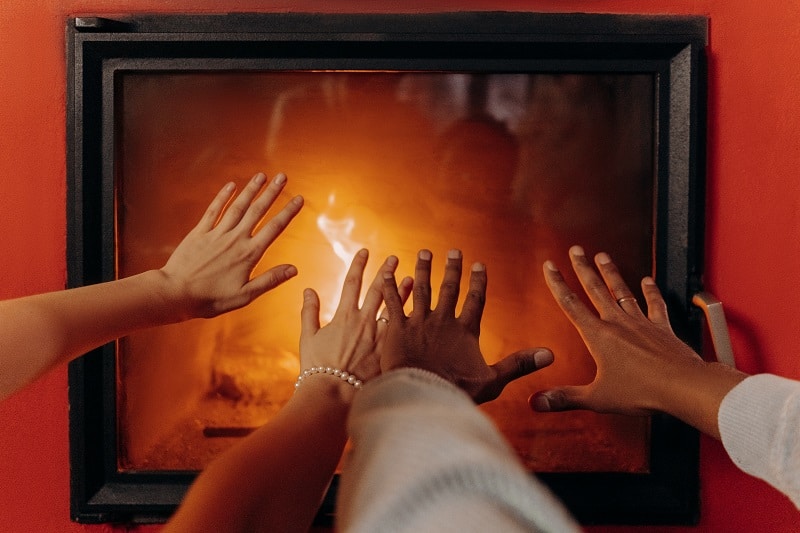Hot flashes can be a troublesome situation for women as they age. For some, hot flashes can be so intense that they may disrupt your daily activities or even your ability to work. This pesky problem is a common occurrence for many women, but it doesn’t have to stop your from keeping your life on track.
What are hot flashes?
A hot flash is the sudden, often unexpected, feeling of warmth in the upper body, which typically feels most intense on the face, neck, and chest. When you experience a hot flash, your skin might redden, as if you’re blushing.
Hot flashes can also cause sweating. If you lose too much body heat, you might even feel chilled afterward. Night sweats are another common of frustration for some. Night sweats are hot flashes that happen at night, and when severe, they may even disrupt your sleep.
What causes hot flashes?
Although other medical conditions can cause hot flashes, they are most commonly due to perimenopause or menopause. Perimenopause involves the irregular periods and the initial stages of your ovaries shutting down. Menopause happens when menstrual periods stop and ovary production is no longer occurring. In fact, hot flashes are the most common symptom of the menopausal transition.
Common symptoms of hot flashes
How do you know if what you’re feeling is a hot flash? Let’s take a look at the symptoms.
During a hot flash, you might experience:
- a sudden felling of warmth spreading throughout the upper part of your body, including your chest, neck and face
- a flushed appearance with red, blotchy skin
- a rapid heartbeat
- perspiration, mostly on your upper body
- a chilled feeling as the hot flash dissipates
- feelings of anxiety
All of these are common and normal responses to the menopause transition. The frequency and intensity of hot flashes vary among women. Hot flashes may be mild or so intense that they disrupt daily activities. They can happen at any time of day or night. Nighttime hot flashes (night sweats) may wake you from sleep and can cause long-term sleep disruption.
There is some variance regarding how often hot flashes occur, but most women report having hot flashes daily. On average, hot flash symptoms persist for more than seven years. Some women may even experience hot flashes for more than 10 years. Hot flashes can sometimes be very disruptive to your routines. If hot flashes affect your daily activities or nighttime sleep, consider seeing your doctor to discuss treatment options.
What causes hot flashes?
Hot flashes are most commonly caused by changing hormone levels before, during, and after menopause. It is not clear exactly how hormonal changes cause hot flashes, but most research suggests that hot flashes happen when decreased estrogen levels cause your body’s thermostat (the hypothalamus) to become more sensitive to slight changes in body temperature. When the hypothalamus thinks your body is too warm, it triggers a hot flash to cool you down.
In rare situations, hot flashes and night sweats can be caused by something other than menopause. Other potential causes include side effects of medication, problem with your thyroid, certain cancers, and side effects of cancer treatment.
Not all women experience have hot flashes during menopause and it’s not clear why some women do have them. Factors that may increase your risk of hot flashes include:
- Smoking: Women who smoke are more likely to have hot flashes.
- Obesity: Being overweight is associated with higher frequency of hot flashes.
- Race: Black women report having hot flashes during menopause more frequently than women of other races. The lowest rates of hot flashes are reported by Asian women.
Research suggests that women who have hot flashes may have an increased risk of heart disease and greater bone loss (osteoporosis) compared to women who do not have hot flashes.
Treatments for hot flashes
Your doctor can usually diagnose hot flashes based on a description of your symptoms. Your doctor might suggest blood tests to check whether you’re experiencing the menopausal transition.
The most effective way to relieve the discomfort of hot flashes is to take estrogen. If estrogen is appropriate for you and you start it within 10 years of your last menstrual period, the benefits greatly outweigh the risks.
Medications such as antidepressants and antiseizure medications might help reduce hot flashes, however, these are less effective than hormones.
Discuss the pros and cons of various treatments with your doctor. If hot flashes are not disrupting your life, you may opt not to undergo estrogen therapy. However, if you are experiencing regular hot flashes, most women see an overall health benefit to estrogen therapy. Hot flashes subside gradually for most women, even without treatment, but it can take several years for them to stop.



